Cuba remains one of the most popular resorts in the Caribbean. Tours to Cuba have long won the hearts of thousands of travelers - with turquoise waves and white sand, the friendliness of the locals and affordable prices.
But instead of being captivated by a tropical fairy tale, some tourists avoid Cuba, falling into the trap of myths about it. What can scare off the Island of Freedom? And how well-founded are the common myths about it? We have debunked the most common claims about the Caribbean citadel of communism. Read, get inspired and book air tickets to Cuba !
Cuba is boring, there are only beaches
The verdict is a myth!
It would be more correct to say that tourists flock to the Island of Freedom for the beaches. Who among us has not heard of the legendary Varadero and Cayo Coco? And while basking in the sun, we deny ourselves the pleasure of discovering a different, non-tourist Cuba.
This is the main charm of the country. With its entire appearance it says: "I am what I am and I will not pretend to be someone else." Against the backdrop of artificial Emirates, where entire islands are being built, and Goa, completely cut off from the rest of Indian reality, Cuba is ready to open the doors of its heart to those who love it simple but passionate.
Take a tour of the streets of Havana, take a closer look at the frozen-in-time lifestyle of the locals, enjoy the museum of retro cars that cut through the streets. And you will understand that the country is diverse.
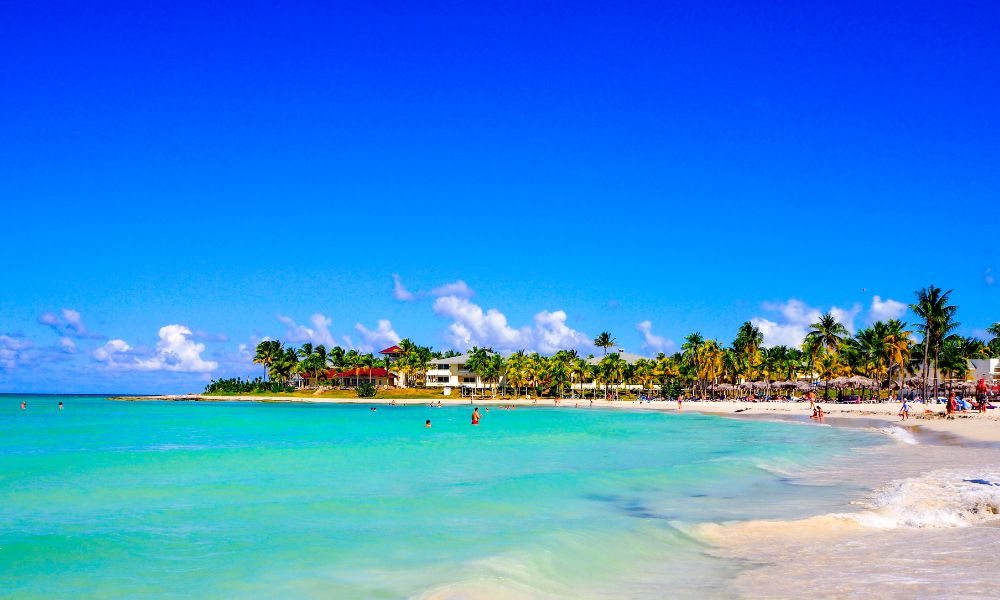
Cuba is criminal and dangerous
The verdict is a myth!
And again, it's a miss. Cubans are indeed poor, but that doesn't push them to the path of crime. Many of them work in the tourist infrastructure that feeds them. And the tourist is a sacred subject, helping the country survive.
The state understands this too. That is why tourists' safety is taken care of, and crimes are strictly punished. The Numbeo platform ranks Cuba among the safest countries in America, along with Panama and Canada.
Every rule has exceptions. Don't wave wads of cash around in an unfamiliar neighborhood in the middle of the night. But following basic safety rules is enough to feel comfortable.
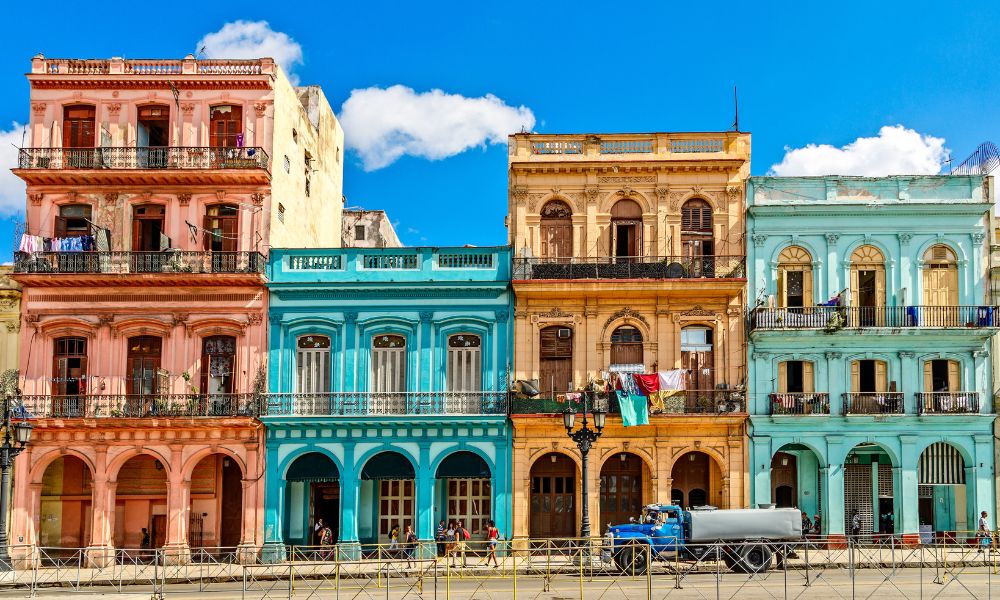
Cuba is a cheap country
Verdict - half-truth!
The country is cheap for locals. It has to be when the average salary is $30 a month. But in conditions of a shortage of goods, it would be an unaffordable luxury to give away cheap goods to tourists who descend on stores like swarms of locusts.
Therefore, the country has developed a system of parallel circulation of two currencies - non-convertible (CUP) and convertible (CUC) pesos. The first is used to pay salaries to local residents. And the second, simply called "cuc", serves as the basis for tourists' settlements, and is used to exchange foreign currency.
The prices in pesos will be the same for you and for Cubans. Only the "cook" is exchanged for the dollar at a rate of 1:1. While in local pesos they give 24 CUP for it. It turns out to be a kind of tax on the wealth of tourists - for them all prices are 24 times more expensive.
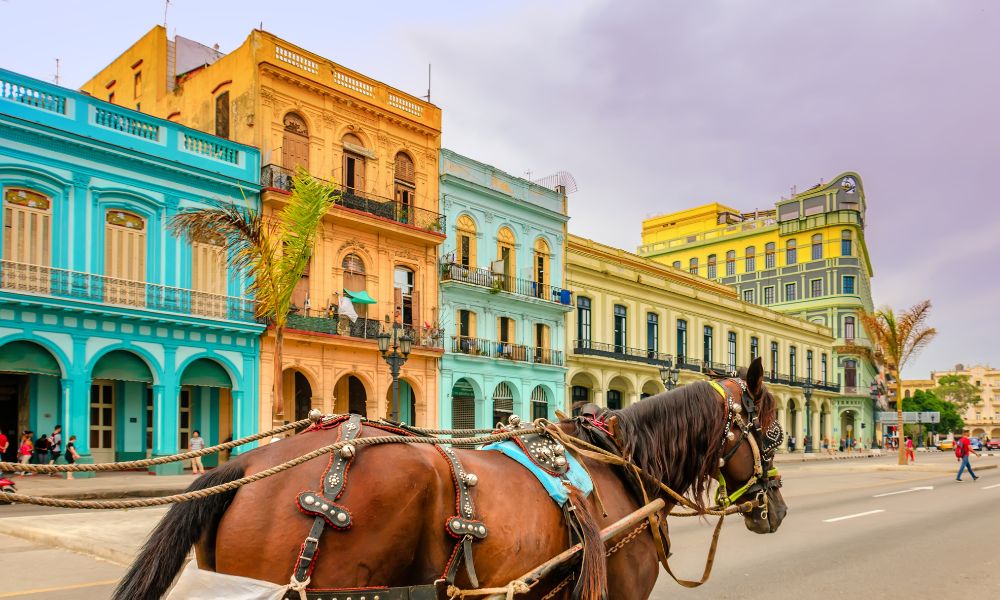
Hurricanes can ruin your vacation
Verdict - half-truth!
In the Caribbean, perhaps the most common horror story is hurricanes and tornadoes that sweep away bungalow houses from their path. That is why St. Lucia, St. Vincent and the Grenadines, Antigua and Barbuda are the most expensive resorts in the world. Have you noticed the contradiction yet?
Bad weather in Cuba is possible, just like in any other maritime region. And once every few years, powerful storms do fly in. But you can always check the weather reports for the region in advance and postpone your trip. It is enough to cross out the period from September to November from your travel calendar to be guaranteed to avoid bad weather in the Caribbean.
If a hurricane catches you on the spot, there is nothing to worry about. The country has a well-established storm warning system. One of the recent powerful hurricanes, Irma, in 2017 brought far more problems to the United States than to Cuba .
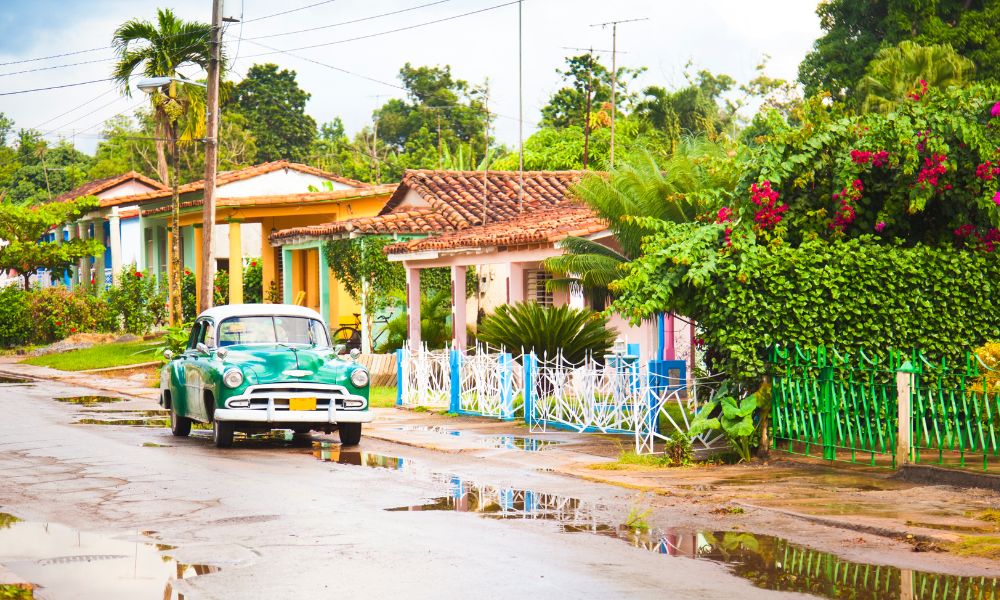
There is no internet in Cuba
The verdict is a myth!
Although Freedom Island does not fully correspond to its loud name, it is not North Korea either. There is Internet there, but it is expensive. Not because the authorities are trying to protect their residents from the outside world. But for much more prosaic reasons - the state does not have the technical capacity to keep up with the times and provide cheap and accessible Internet traffic.
There are three ways to get the coveted access to the virtual world. The first is in the hotel. Most good hotels in Cuba have a good internet connection. And you will definitely be able to get the network at least in the lobby.
The second way is to visit an Internet cafe. And see for yourself that no one asks you for documents at the entrance or other deanonymization measures. But the prices in such establishments are very high - a half-hour session is equivalent to a worker's daily earnings.
The third, relatively new, method is public Wi-Fi zones, which you can easily identify by the crowds of people intently studying their smartphones. To use these spots, you need to buy a Wi-Fi access card at the nearest kiosk.
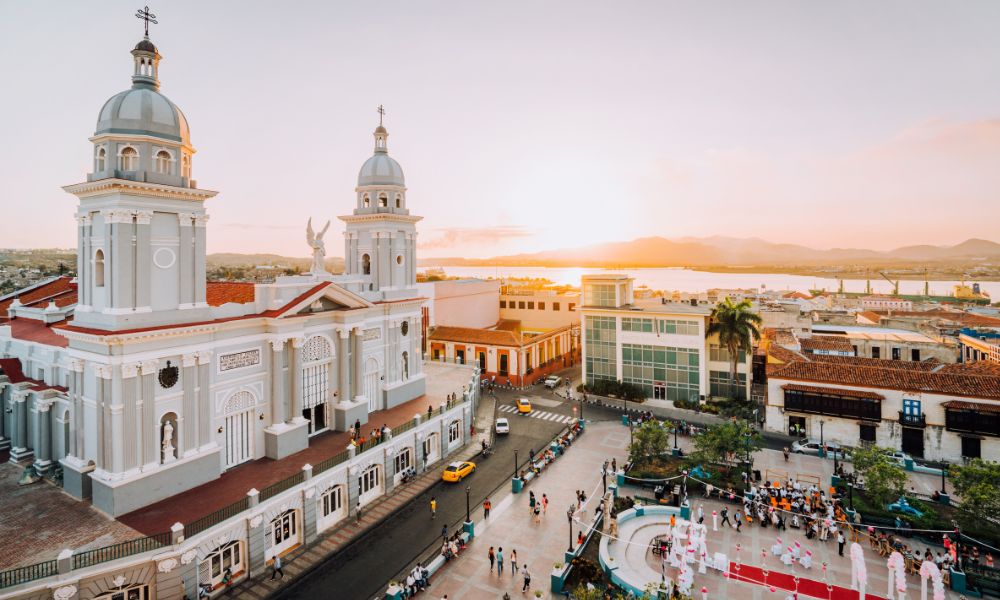
Cubans don't speak English
The verdict is mostly a myth!
Welcome to Latin America, where Spanish has dominated for five hundred years. Knowing it will make your life on the island much easier.
But if you don't know the world's most common language, it's not a problem. Every year, more and more English-speaking Cubans are becoming more common, especially among the younger population. In large cities and tourist locations, you will not only be understood, but also greeted by English-language shop windows and menus.
Politics is a taboo topic of conversation
Verdict - half-truth!
There is a saying that it is useless to argue about three things - politics, religion and music. This universal wisdom, and not the tough policy of the Cuban leadership, predetermines the locals' taciturnity on political topics.
No one will put you in jail if you express a critical attitude towards communism or the Cuban revolution in a conversation with the locals. And they may even agree with you on some points, complaining about the miserable life with empty shelves and low wages. But you definitely shouldn’t try on the role of the new Che Guevara and call for the rise of the Cuban revolutionary spirit against the communists – it’s not dangerous, it’s just uncultured.
Disgusting kitchen
The verdict is a myth!
But just a few decades ago, the statement was an indisputable truth. A British journalist who visited Liberty Island once wrote a review of the local cuisine:
"A so-called Italian restaurant served curdled cornstarch and milk with gristly meat and diluted tomato ketchup and called it lasagna . "
But since then, the country's restaurant business has undergone a major transformation. The privatization of the service sector has had an effect - private establishments are much more responsible about the quality of the food they serve and care about good reviews.
When visiting a Cuban restaurant, it would be a mistake to ignore the signature dishes of pork and beans. Popular dishes include frijoles negros (stewed black beans), arros con pollo (chicken with rice, vegetables and seasonings), picadillo (a mixture of ground meat, olives, raisins and other ingredients), boliche (a stew of beef stuffed with ham or chorizo sausage) and Cuban bread.
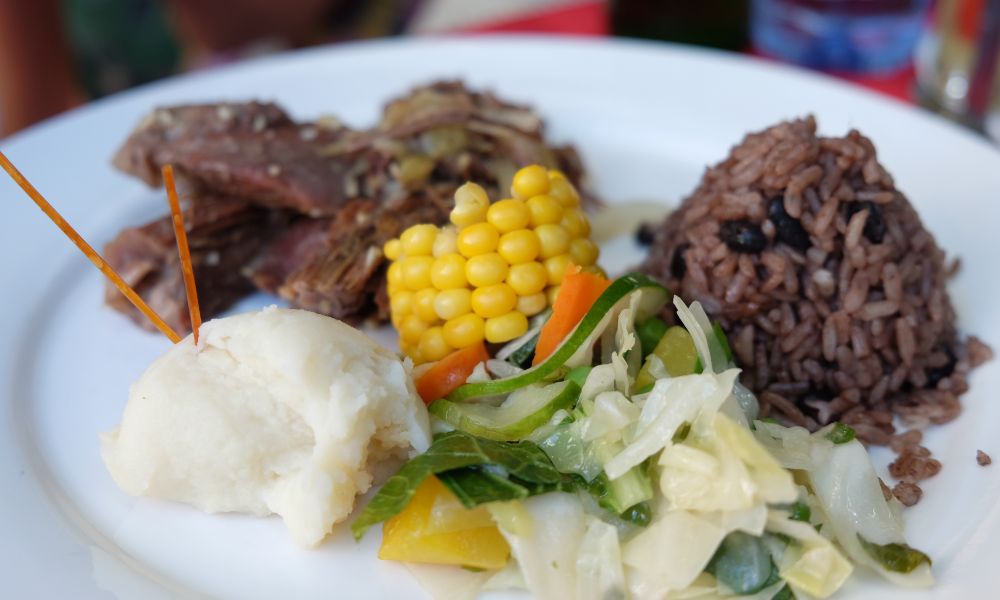
Few supermarkets
The verdict is true!
It is not difficult to create a supermarket. But filling it with goods is much more difficult. Shortages are an inevitable companion of all socialist and communist states - and Cuba is no exception.
In rare supermarkets (this applies to a lesser extent to Havana and Trinidad), you can find post-apocalyptic scenes of empty shelves, as if the city is preparing for a zombie invasion and has swept everything clean. With a small amendment - there is nothing left to sweep away.
But this does not mean that there are no shops on the island at all or that they are always empty. In the country, retail outlets operate on a separate principle: come here for vegetables, and here for eggs, and here they have delivered fresh meat. Do you feel the charm of our 90s?
Only cash is accepted on the island.
The verdict is mostly true!
Problems with bank card payments do indeed occur.
This is another consequence of Cuba's isolation and limited contact with the larger world, where technology has already advanced far.
However, "cash only" services are more of a rudiment outside of the tourist infrastructure. At resorts, many facilities have already adapted to innovations and will accept Visa and Mastercard cards for payment. The main thing is that they are not American.
Still, it's worth having some cash on hand. This is the golden rule of any trip, whether to Cuba or the US, and there can always be problems with terminals.
There is another unpleasant surprise. If you are carrying cash dollars with you, you can exchange them, but with a fine. Usually 10% of the amount.
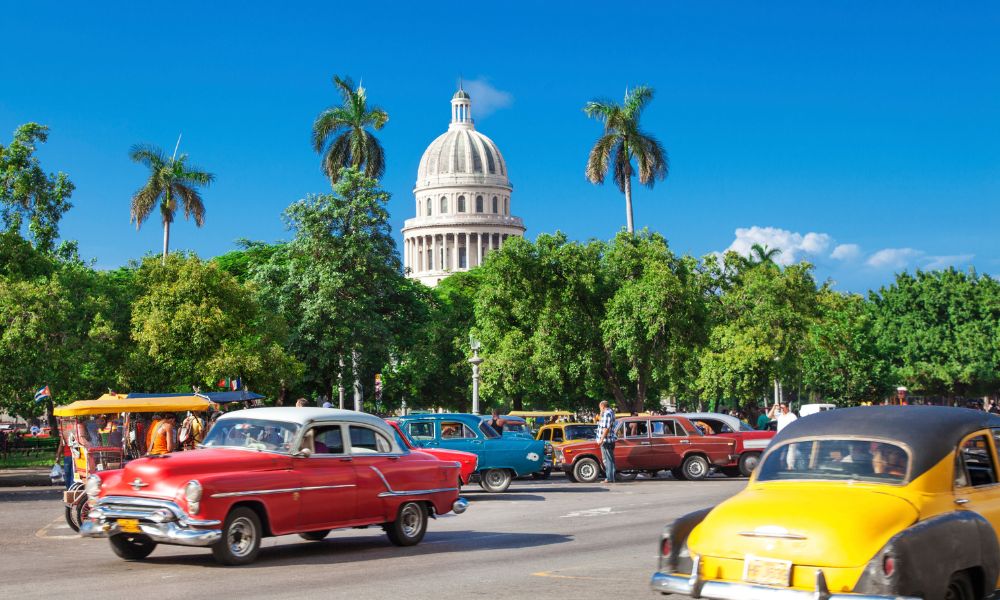
There is a toilet paper shortage in Cuba
The verdict is a myth!
Some people still believe in it! In one of the publications, a traveler shared her experiences about the lack of hygiene products on the island state and… took several rolls of toilet paper with her.
Whether she was pleased that the precautionary measure was in vain or not, history is silent. But a lesson for all tourists - there will be no shortage of toilet paper in the hotel!
There are many rumors and speculations about Cuba. But, as Oscar Wilde said
"I have heard so much slander about you that I have no doubt: you are a wonderful person!"
This is the best description of the Island of Freedom. See for yourself with TravelHub !








 ios
ios
 android
android



 BYN
BYN  RUB
RUB 
















